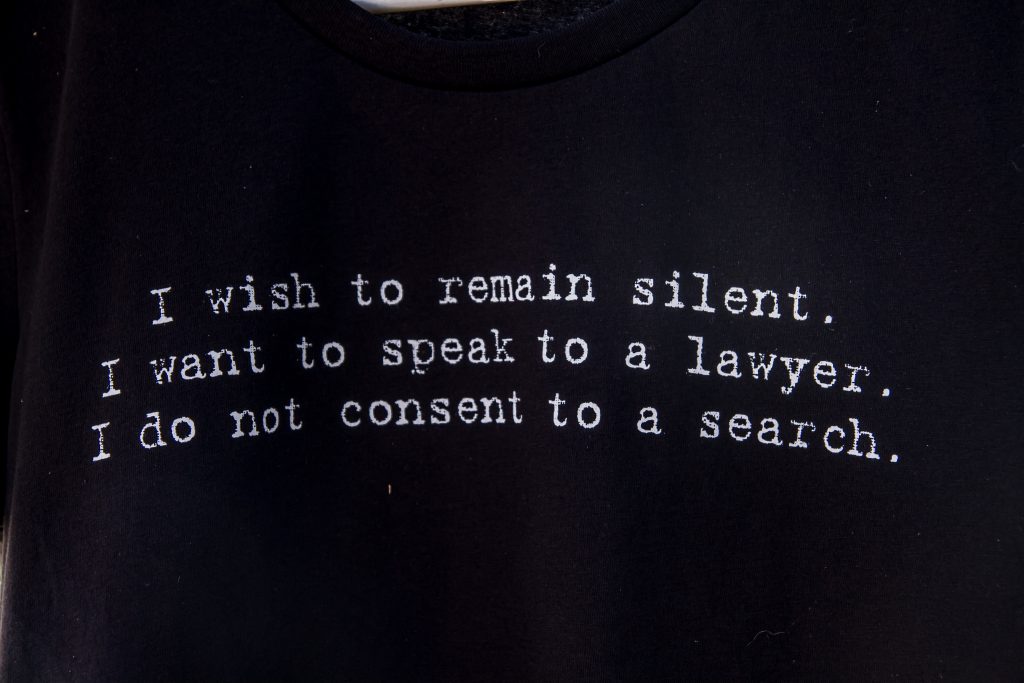Crafting compelling content for a criminal defense attorney’s website blog requires a deep understanding of the target audience—individuals facing criminal charges in Utah. By researching their needs and concerns, you can create informative posts that explain complex legal concepts in a clear and accessible manner. Showcase your expertise and experience through engaging case studies and real-life scenarios, instilling confidence and setting your firm apart. Address common legal concerns directly, providing reassurance and guidance. Incorporate personal stories to humanize your practice and create emotional connections. Optimize your content for search engines by conducting keyword research and incorporating keywords naturally. Every blog post should include a clear call-to-action, prompting potential clients to take the next step and seek assistance promptly. With the Criminal Defense Constitutional Rights, you can effectively communicate the importance of protecting one’s rights and offer valuable guidance to those in need.

This image is property of images.unsplash.com.
Understanding Criminal Defense Constitutional Rights
When facing criminal charges, understanding and asserting your constitutional rights is crucial for a fair and just legal process. Constitutional rights provide individuals with protections against government infringement and ensure that the criminal justice system operates with fairness and integrity. In this comprehensive article, we will explore the importance of constitutional rights in criminal defense, their role in the criminal justice system, and the common constitutional rights that are relevant in criminal defense cases.
The Importance of Constitutional Rights in Criminal Defense
Constitutional rights form the foundation of the legal system in the United States, and they play a significant role in criminal defense cases. These rights are designed to protect individuals accused of crimes from unfair treatment, wrongful conviction, and abuse of power. By upholding constitutional rights, the criminal justice system can ensure that the accused receives due process and a fair trial.
The Role of Constitutional Rights in the Criminal Justice System
Constitutional rights serve as a check on government power and aim to prevent the abuse of authority within the criminal justice system. They provide individuals with certain guarantees to safeguard their rights during the investigative, prosecutorial, and adjudicative stages of the legal process. These rights act as a shield against potential violations and ensure that the accused is treated fairly and with dignity throughout the criminal proceedings.
Common Constitutional Rights in Criminal Defense Cases
In criminal defense cases, several constitutional rights come into play. These rights are enshrined in the United States Constitution and protect individuals accused of crimes. Understanding and asserting these rights are essential for a robust defense. Let’s delve into some of the most significant constitutional rights in criminal defense:

This image is property of images.unsplash.com.
The Right to Counsel
Overview of the Right to Counsel
The right to counsel is one of the fundamental constitutional rights in criminal defense cases. It guarantees that individuals accused of crimes have the right to legal representation throughout the legal process. This right ensures that the accused has the opportunity to consult with an attorney who can provide advice, guidance, and advocacy on their behalf.
The Sixth Amendment and the Right to Counsel
The right to counsel is anchored in the Sixth Amendment of the United States Constitution. This amendment states that “the accused shall enjoy the right…to have the Assistance of Counsel for his defense.” The right to counsel guarantees that individuals are not left to navigate complex legal proceedings alone and are provided with an attorney who can protect their rights and interests.
Consequences of Denying the Right to Counsel
Denying the right to counsel can have severe consequences for the accused. Without legal representation, individuals may struggle to understand the intricacies of the legal system, fail to adequately prepare their defense, and risk being taken advantage of by prosecutors. The right to counsel ensures a fair and balanced legal process, where the accused has access to crucial legal advice and representation.
The Right to a Fair Trial
Introduction to the Right to a Fair Trial
The right to a fair trial is a cornerstone of the criminal justice system. It ensures that individuals accused of crimes are granted an impartial hearing and have the opportunity to present their defense. This right protects against bias, prejudice, and unfair treatment during the trial.
The Due Process Clause and Fair Trial Rights
The right to a fair trial is primarily protected by the Due Process Clause, found in the Fifth and Fourteenth Amendments of the United States Constitution. This clause guarantees that no person shall be deprived of “life, liberty, or property without due process of law.” Within the context of criminal defense, due process encompasses the right to a fair and impartial trial, adequate notice of the charges, the presumption of innocence, the right to present a defense, and the right to cross-examine witnesses.
Factors Affecting the Fairness of a Trial
Various factors can affect the fairness of a trial. These include jury selection, the presentation of evidence, the conduct of the judge and attorneys, the availability of witnesses, and the opportunity for the accused to participate in their defense. Safeguarding the right to a fair trial ensures that justice is served and helps maintain public confidence in the legal system.

This image is property of images.unsplash.com.
The Right to Remain Silent
Overview of the Right to Remain Silent
The right to remain silent, often referred to as the right against self-incrimination, grants individuals the power to refrain from providing testimonial evidence that could be used against them in a criminal proceeding. This right protects against coerced confessions and ensures that individuals have the freedom to choose whether to speak or remain silent.
The Fifth Amendment and Self-Incrimination
The right to remain silent is rooted in the Fifth Amendment of the United States Constitution, which states that no person “shall be compelled in any criminal case to be a witness against himself.” This constitutional protection allows individuals to invoke their right to silence, preventing self-incrimination and protecting against coerced or involuntary statements.
Implications of Exercising or Waiving the Right to Remain Silent
Exercising the right to remain silent allows individuals to avoid potentially incriminating themselves during police interrogations or other legal proceedings. It places the burden of proof on the prosecution and helps maintain the presumption of innocence. However, individuals should also be aware that waiving the right to remain silent and choosing to testify can provide an opportunity to present their side of the story and refute the prosecution’s case. The decision to exercise or waive this right should be carefully considered in consultation with legal counsel.
The Right to Confrontation
Understanding the Right to Confrontation
The right to confrontation guarantees that individuals accused of crimes have the right to confront and cross-examine witnesses who testify against them. This right ensures transparency, fairness, and the opportunity to challenge the credibility and reliability of prosecution witnesses.
The Sixth Amendment and Confrontation Clause
The right to confrontation is enshrined in the Sixth Amendment’s Confrontation Clause, which states that the accused shall enjoy the right “to be confronted with the witnesses against him.” This constitutional protection gives individuals the opportunity to question witnesses directly, either through their attorney or by self-representation, during the trial.
Challenges and Exceptions to the Right to Confrontation
While the right to confrontation is vital for a fair trial, certain challenges and exceptions can arise. For example, witnesses may be unavailable or uncooperative, leading to limitations on cross-examination. Additionally, there are exceptions to the right to confrontation, such as when witnesses are deemed unreliable or when safeguards are in place to protect vulnerable witnesses. Balancing the right to confrontation with other legitimate interests ensures that the trial remains fair and effective.
The Right to Due Process
Exploring the Right to Due Process
The right to due process ensures that individuals are afforded fair treatment and procedural safeguards in legal proceedings. It encompasses various aspects, including notice of charges, the right to be heard, the right to present evidence, and the right to a fair and impartial tribunal.
The Fourteenth Amendment and Due Process Rights
The right to due process is primarily protected by the Fourteenth Amendment of the United States Constitution, which prohibits states from depriving any person of “life, liberty, or property, without due process of law.” This constitutional protection extends to criminal defense cases and ensures that individuals are treated fairly and with respect for their rights throughout the legal process.
Balancing Due Process and Public Safety
Balancing due process rights with public safety concerns can sometimes present challenges in criminal defense cases. While it is vital to uphold constitutional protections, there may be instances where certain restrictions or limitations are imposed to safeguard public safety. Striking the right balance between due process and public safety is essential to maintain the integrity of the criminal justice system.
The Right against Unreasonable Searches and Seizures
Overview of the Right against Unreasonable Searches and Seizures
The right against unreasonable searches and seizures protects individuals from arbitrary intrusions by law enforcement. It ensures that searches and seizures are conducted based on probable cause and in accordance with the law.
The Fourth Amendment and Search and Seizure Protections
The right against unreasonable searches and seizures is enshrined in the Fourth Amendment of the United States Constitution, which protects against “unreasonable searches and seizures” and requires warrants to be supported by probable cause. This constitutional protection ensures that individuals have a reasonable expectation of privacy and prevents unlawful intrusion into their homes, belongings, and personal lives.
Exceptions to the Right against Unreasonable Searches and Seizures
While the Fourth Amendment safeguards against unreasonable searches and seizures, there are exceptions to this right. Some exceptions include situations where law enforcement has obtained a valid search warrant, consent is given by the individual, or exigent circumstances exist, such as an immediate threat to public safety. Understanding these exceptions is crucial in evaluating the legality of search and seizure actions.
The Right to Speedy Trial
Introduction to the Right to Speedy Trial
The right to a speedy trial ensures that individuals accused of crimes are not subjected to unnecessary delays and ensures prompt resolution of their cases. This right protects against prolonged pretrial detention and undue burden on the accused.
The Sixth Amendment and Speedy Trial Protections
The right to a speedy trial is guaranteed by the Sixth Amendment, which states that the accused shall enjoy the right to a “speedy and public trial.” This constitutional provision aims to safeguard the interests of the accused by preventing lengthy pretrial detention, protecting against fading memories and witnesses’ unavailability, and avoiding undue stress and burden on the defendant.
Determining Violations of the Right to Speedy Trial
When evaluating whether the right to a speedy trial has been violated, several factors are considered. These factors include the length of the delay, the reasons behind the delay, the defendant’s assertion of the right, and any prejudice suffered by the accused due to the delay. Balancing the interests of the defendant and the prosecution ensures that justice is served while respecting the rights of the accused.
The Right to Equal Protection
Understanding the Right to Equal Protection
The right to equal protection ensures that individuals are treated equally under the law and protects against discrimination or unjust treatment based on factors such as race, gender, religion, or national origin. This right ensures that all individuals, regardless of their background, receive fair and equitable treatment within the criminal justice system.
The Fourteenth Amendment and Equal Protection Rights
The right to equal protection is grounded in the Fourteenth Amendment of the United States Constitution, which guarantees that no state shall “deny to any person within its jurisdiction the equal protection of the laws.” This constitutional protection ensures that all individuals are afforded the same legal rights and that laws are applied consistently and impartially.
Application of Equal Protection in Criminal Defense
In the context of criminal defense, equal protection guarantees that individuals are not subjected to discriminatory treatment during arrest, prosecution, or sentencing. It ensures that everyone is entitled to the same legal protections and opportunities, regardless of their personal characteristics. Upholding the right to equal protection is vital for maintaining a just and equitable criminal justice system.
The Right against Cruel and Unusual Punishment
Overview of the Right against Cruel and Unusual Punishment
The right against cruel and unusual punishment protects individuals from excessive or inhumane treatment and ensures that punishment is proportionate to the offense committed. This right safeguards human dignity and promotes the concept of rehabilitation within the criminal justice system.
The Eighth Amendment and Protection against Cruel and Unusual Punishment
The right against cruel and unusual punishment is enshrined in the Eighth Amendment of the United States Constitution, which states that “cruel and unusual punishments [shall not] be inflicted.” This constitutional protection prohibits the use of disproportionately severe punishments and ensures that individuals are not subjected to torture, degrading treatment, or excessive penalties.
Interpretation and Application of the Right against Cruel and Unusual Punishment
Courts interpret and apply the right against cruel and unusual punishment on a case-by-case basis, considering the nature of the offense, the characteristics of the offender, and societal norms. This allows for a flexible approach that considers evolving standards of decency and prevents excessive punishment or dehumanizing treatment within the criminal justice system.
Conclusion
In conclusion, understanding and asserting constitutional rights in criminal defense cases are essential for a fair, just, and balanced legal process. The rights to counsel, a fair trial, remain silent, confrontation, due process, protection against unreasonable searches and seizures, speedy trial, equal protection, and protection against cruel and unusual punishment are the cornerstones of a robust defense. By upholding these rights, the criminal justice system can ensure that individuals accused of crimes are treated with respect, dignity, and fairness. It is crucial to protect and uphold these constitutional rights to maintain the integrity of the legal system and ensure justice is served for all individuals involved in criminal defense cases.



